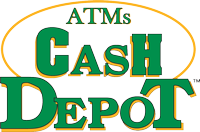 This article is brought to you by Cash Depot.
This article is brought to you by Cash Depot.
Since one in five transactions occurs in cash, managing cash flow in the store safely and accurately is a critical task for retailers. Add to that hiring and labor challenges and the constant vigilance required to reduce shrink from theft or pure miscounting (16% of retail cash loss is due to human errors) and choosing the right cash management system that can reduce the time spent manually handling cash becomes even more crucial.
“A good cash management system should accomplish three things: cut down on time spent on cash management; reduce internal cash theft and human error; and provide faster, more accurate cash counting,” said Sean Burke, CEO of Cash Depot.
A quality cash management system might cost more in monthly fees or require more upfront capital than a less expensive option, but the time saved and accuracy have a big payoff, he noted.
“Not all smart safes or cash recycling systems do all of the things they need to well,” said Burke.
Many retailers may already be using smart safes or cash recyclers, but Burke cautioned that the least expensive of these come with single-note acceptors, which are time consuming and can leave a lot of room for human error or internal theft.
“Inserting each note individually may only take 2-3 seconds per note, but at 300 notes that’s still 10-15 minutes of an employee’s time,” Burke said. Because it can take so long, c-stores with single-note acceptor machines “often find their managers still counting cash manually and only using their cash management machines for end-of-day deposits, which keeps the door open for human errors and internal theft.”
But even bulk note acceptance smart safes have their limits. According to Burke, while they reduce the amount of cash employees are handling, bulk acceptance smart safes “save next to nothing on register preparation. Stores still have to hand count funds in preparation for start-of-shift and standard register change requirements, which still provides ample opportunity for mistakes.”
Cash recyclers that have bulk deposit and dispense capabilities, meanwhile, cut employee cash handling to near zero, said Burke, saving on both time and costs associated with cash management. “The average store can save over 400 minutes (or about seven hours) a week in bank trips and deposit preparation, and save an average of 900 minutes (or 15 hours) per week in cash handling, reporting, deposit preparation, register preparation and reconciliation,” he said. “At $20 per hour, that translates to about $300 per week in savings for retailers.”
Burke said Cash Depot’s BANK IN A BOX system offers all of these features. “It’s a cash recycling safe that can store, sort, verify and manage multiple denominations. And when it comes to speed, there are few machines faster. The BANK IN A BOX can count and record up to 300 notes in 30 seconds or less. Then the real-time, mobile-friendly reporting portal tracks transactions by location and employee for further accuracy and accountability,” he explained.
Dive into more content about cash management sponsored by Cash Depot. Read about cash management and recycling; the hidden costs of cash management; how to save on cash management, provisional credit, interest and fees; and how to reduce shrink and external theft.